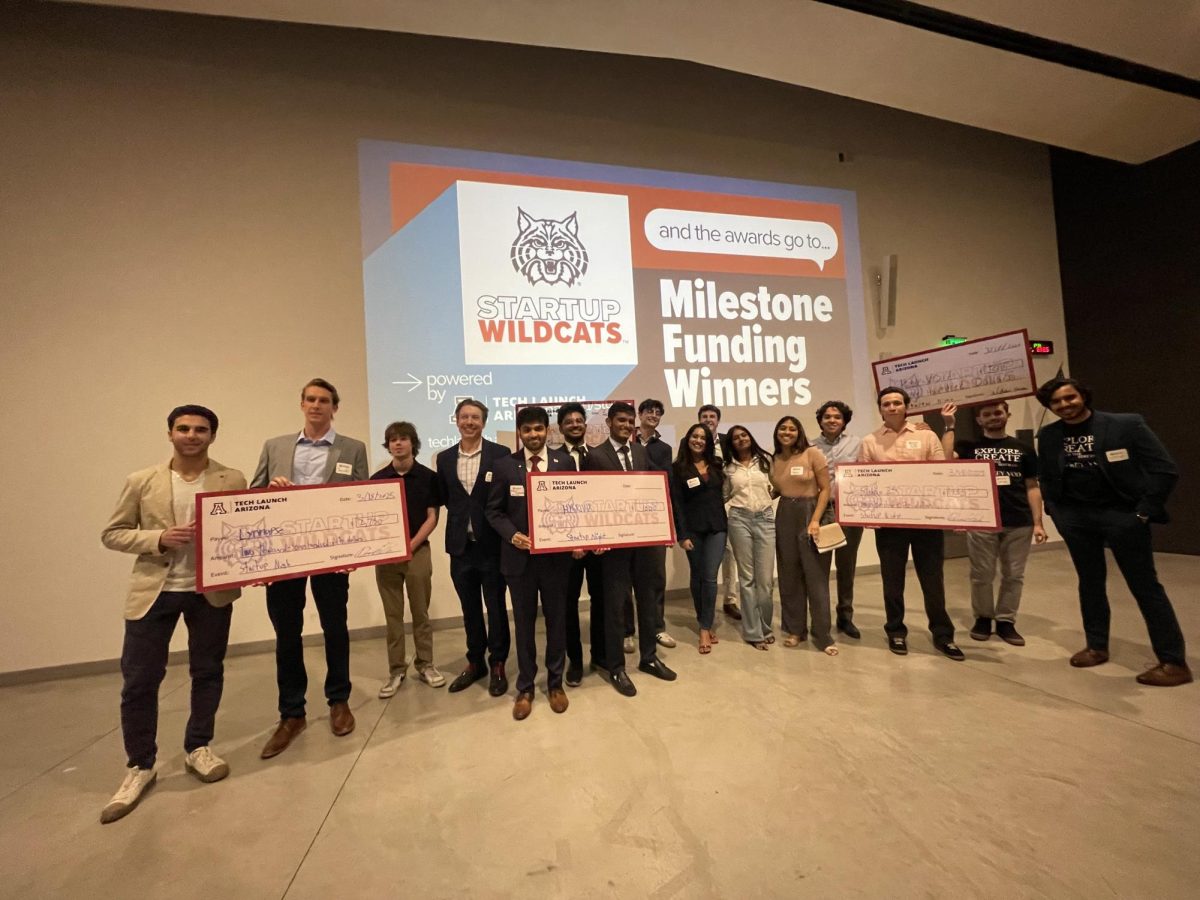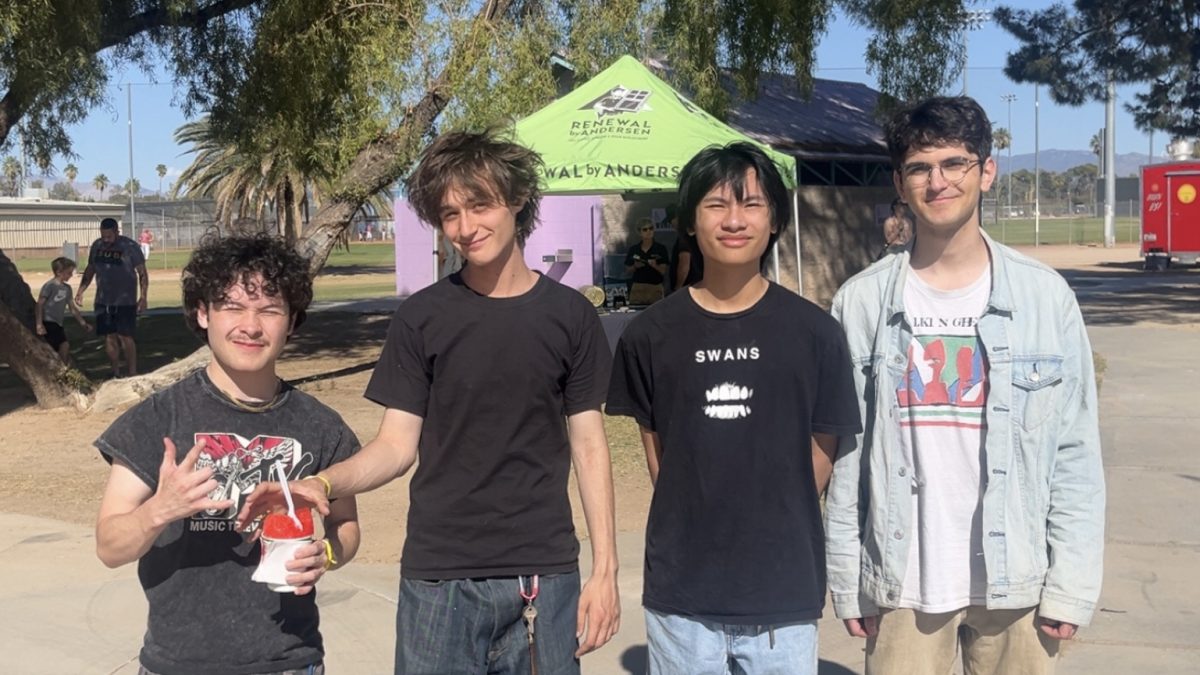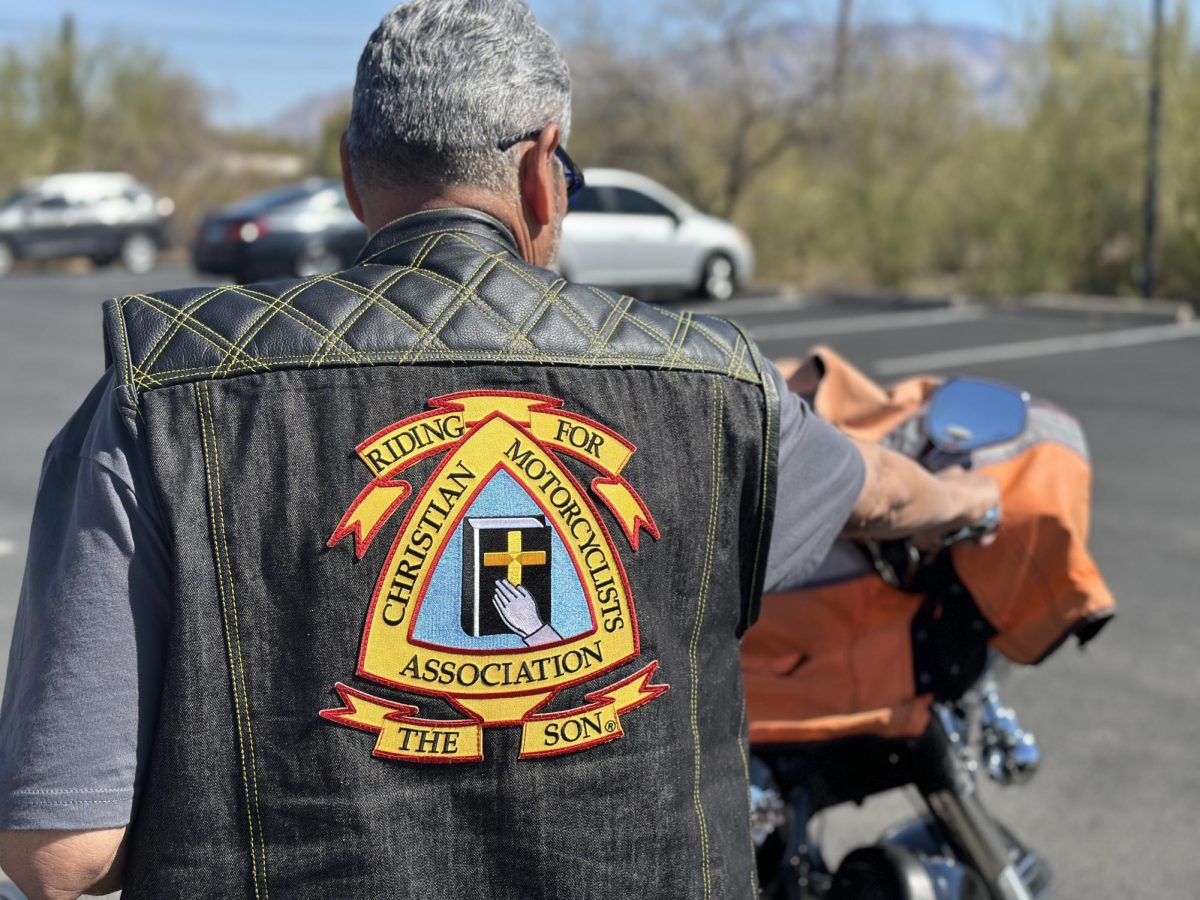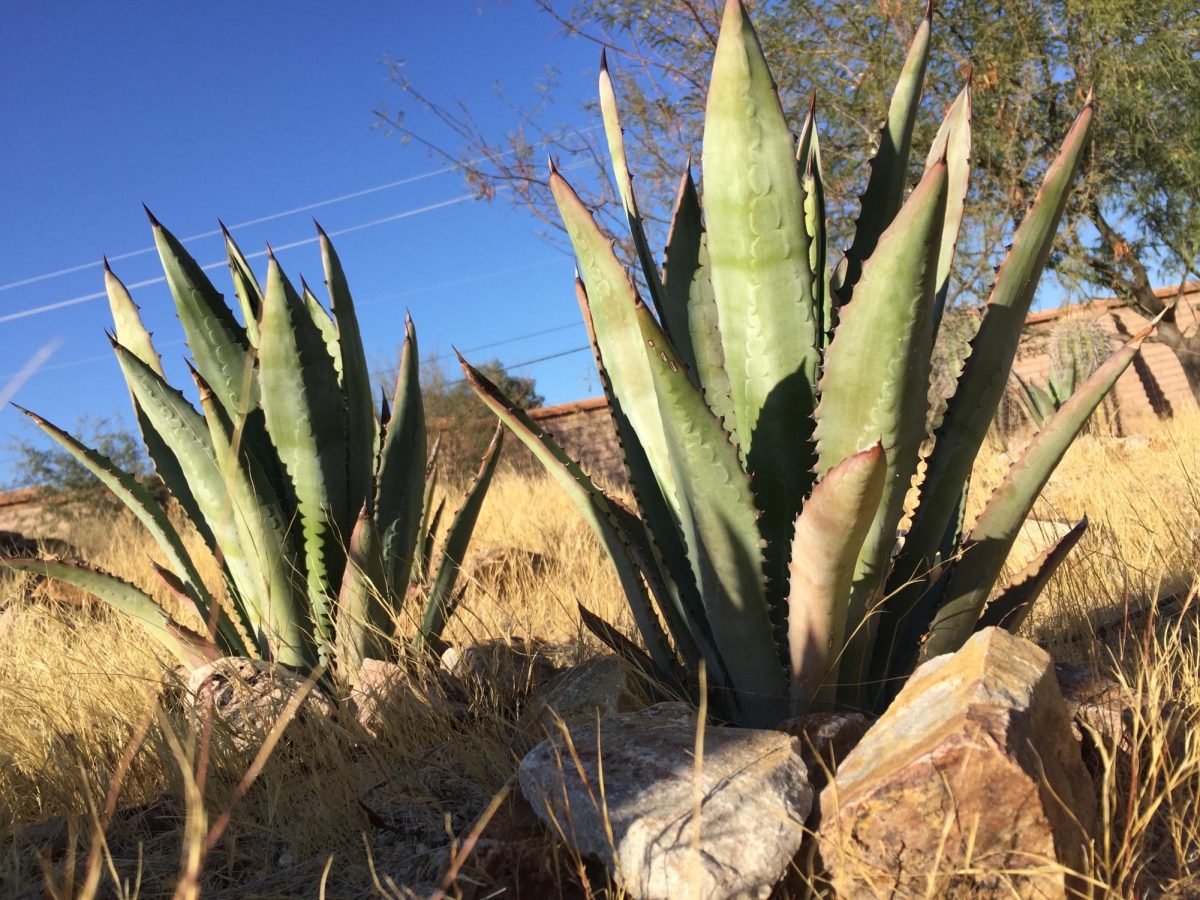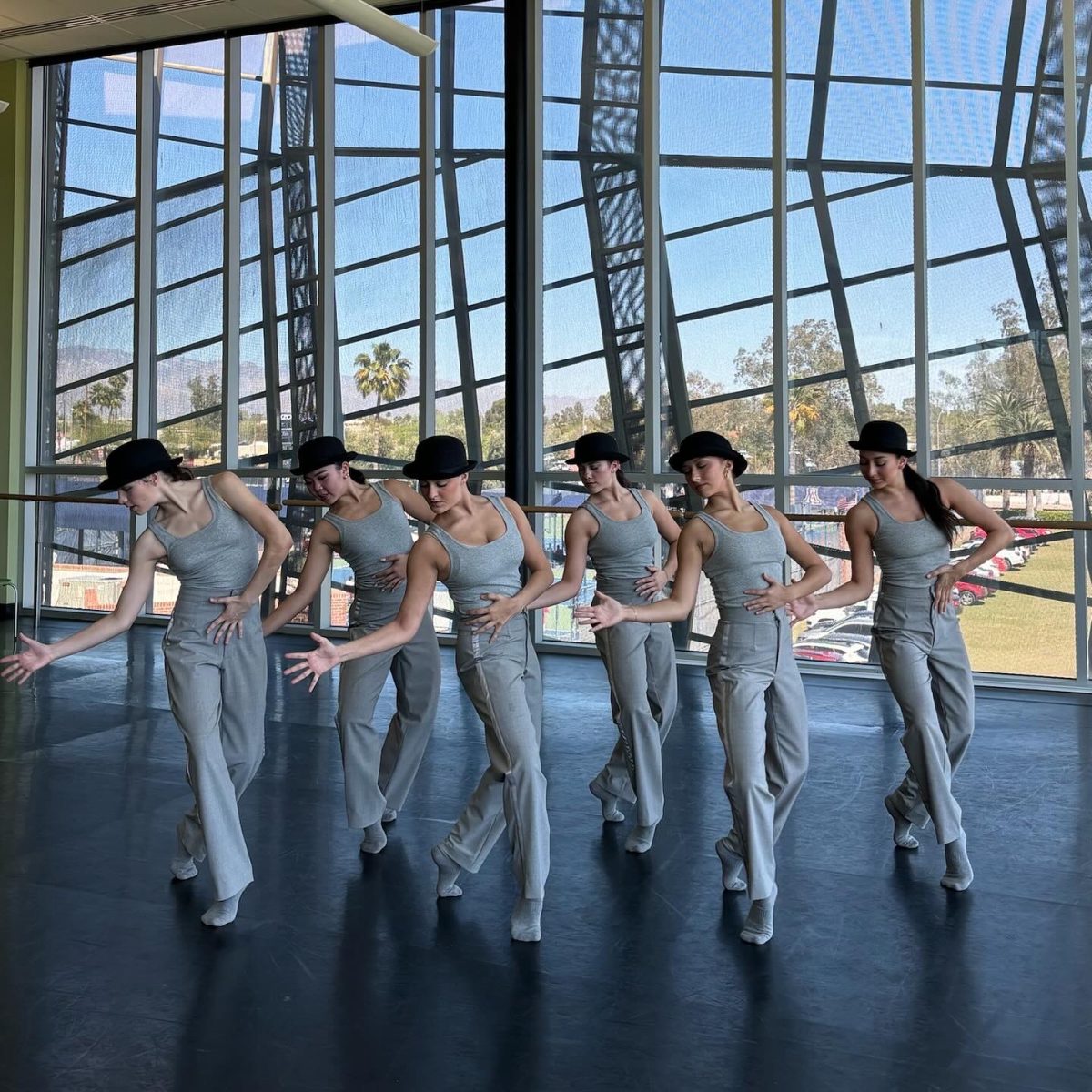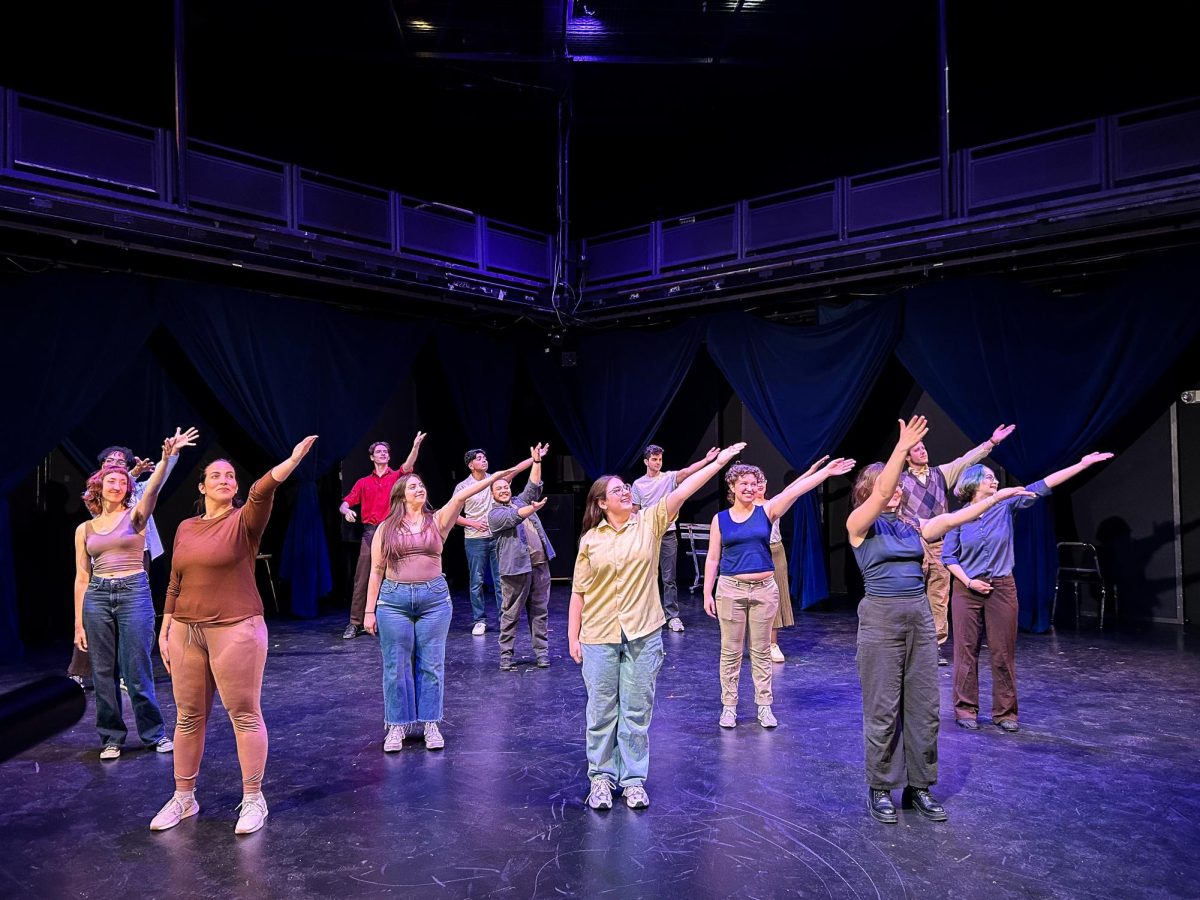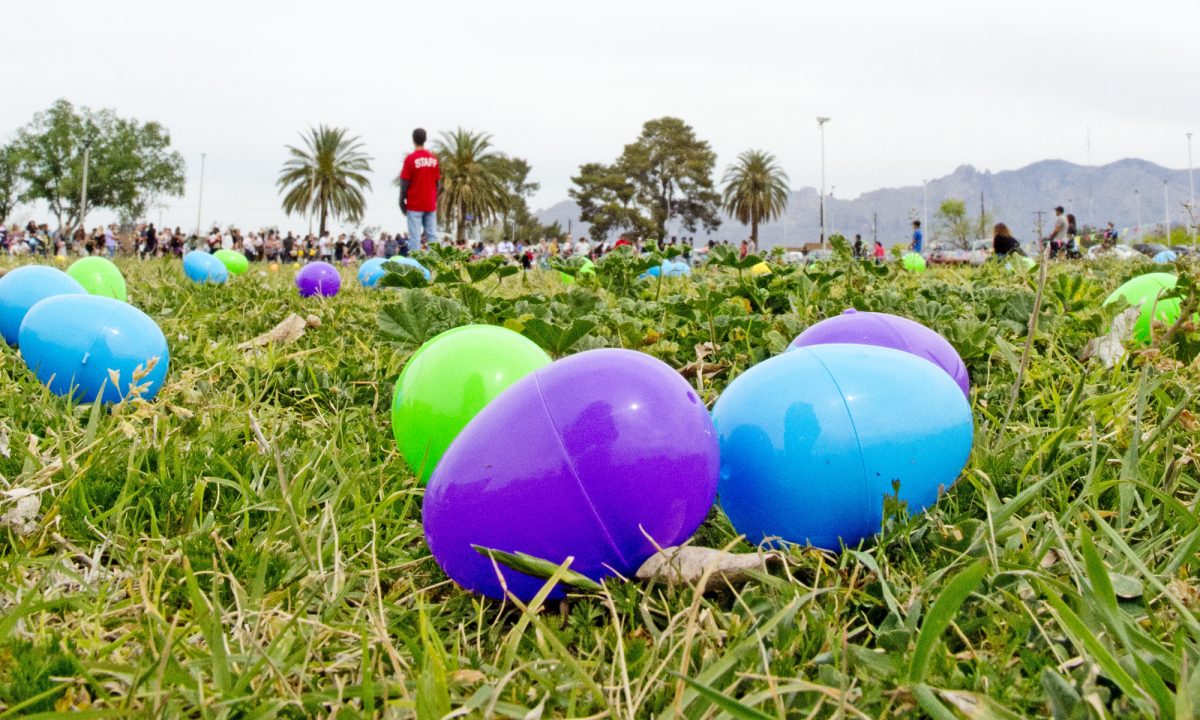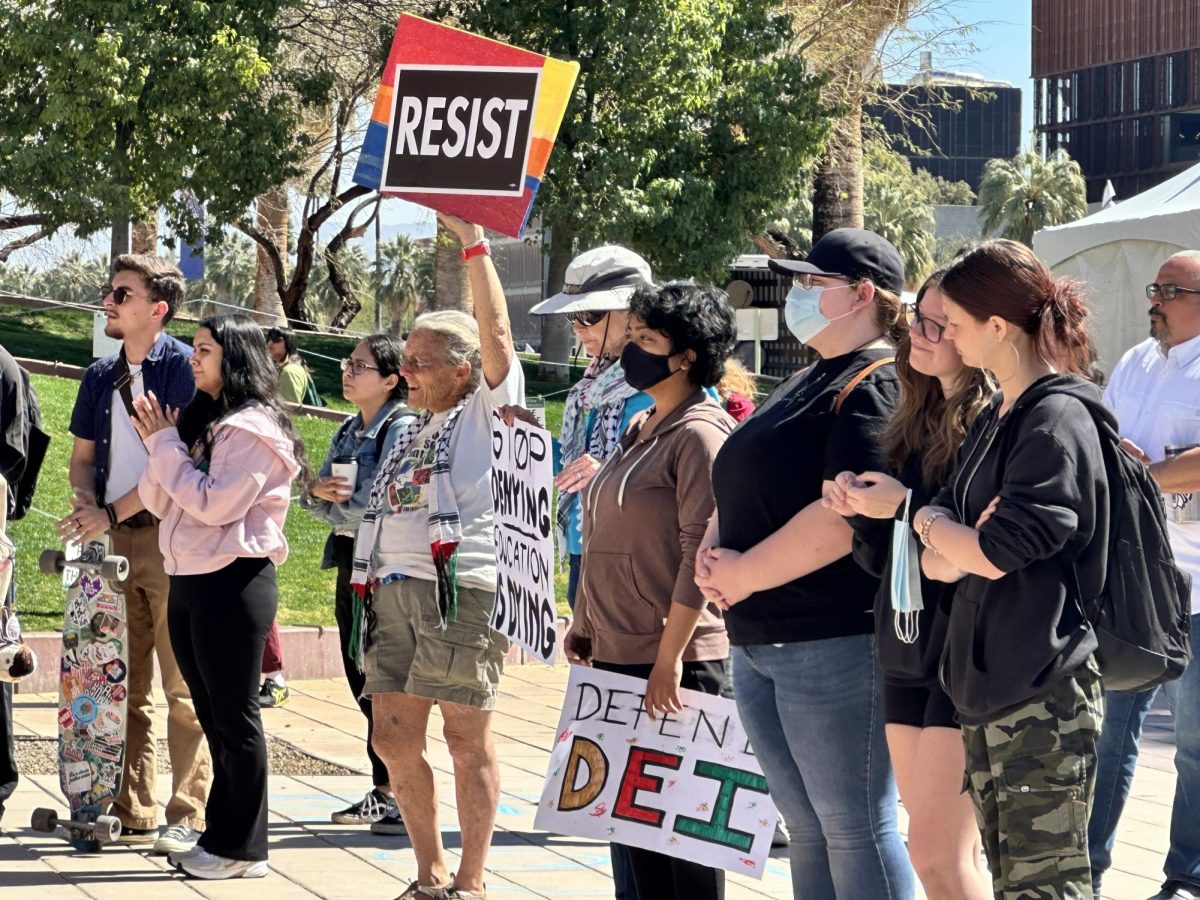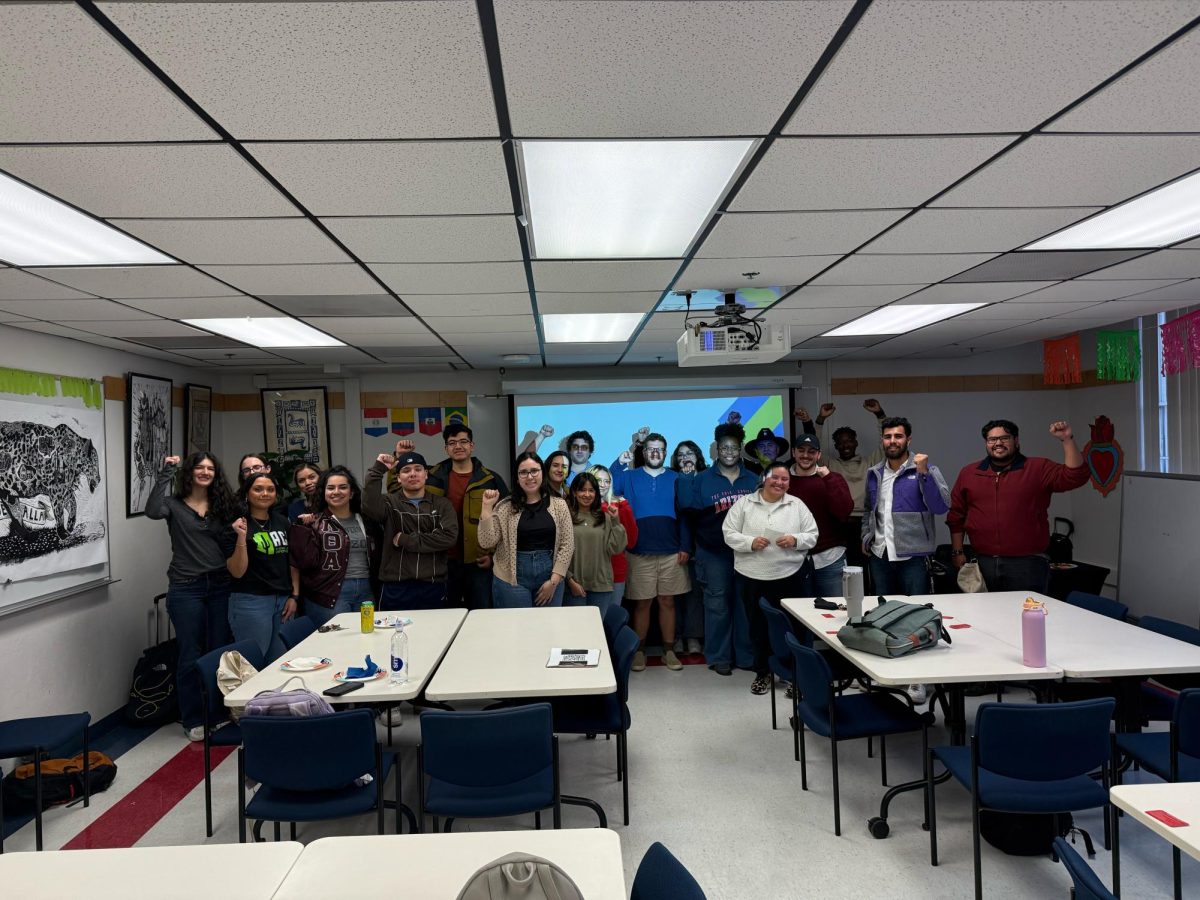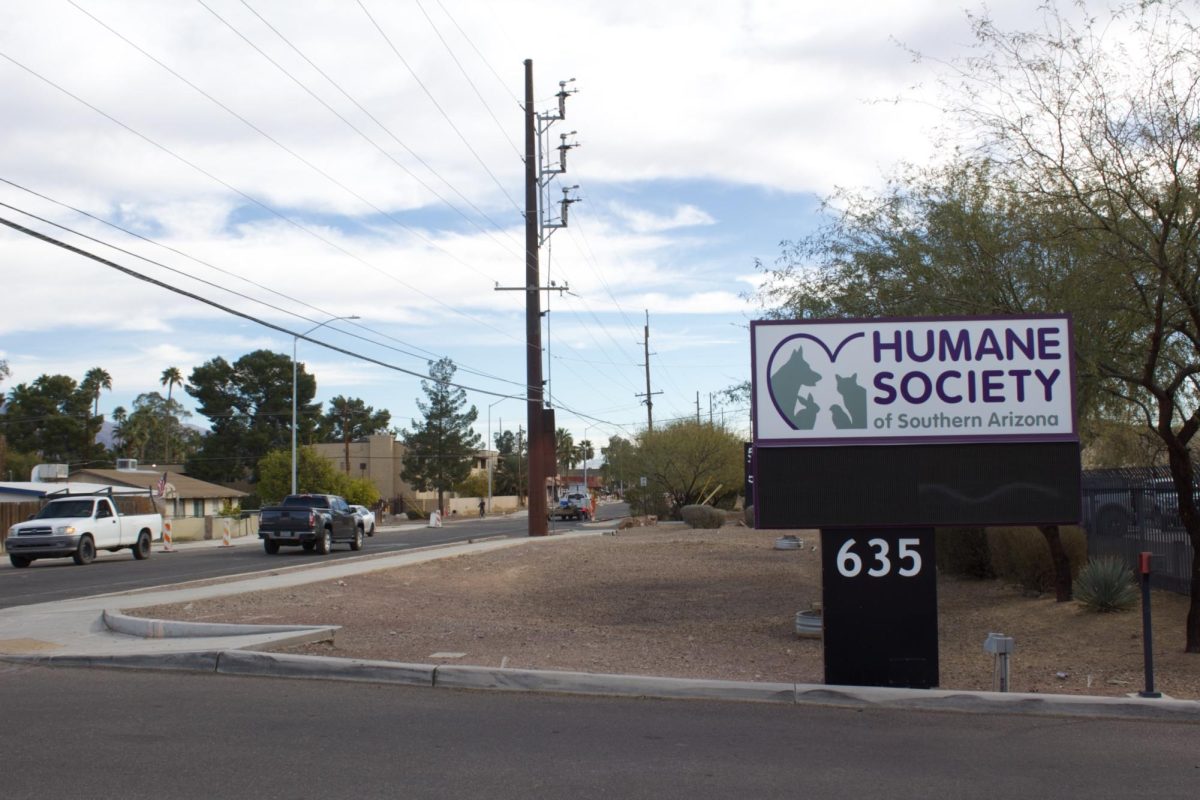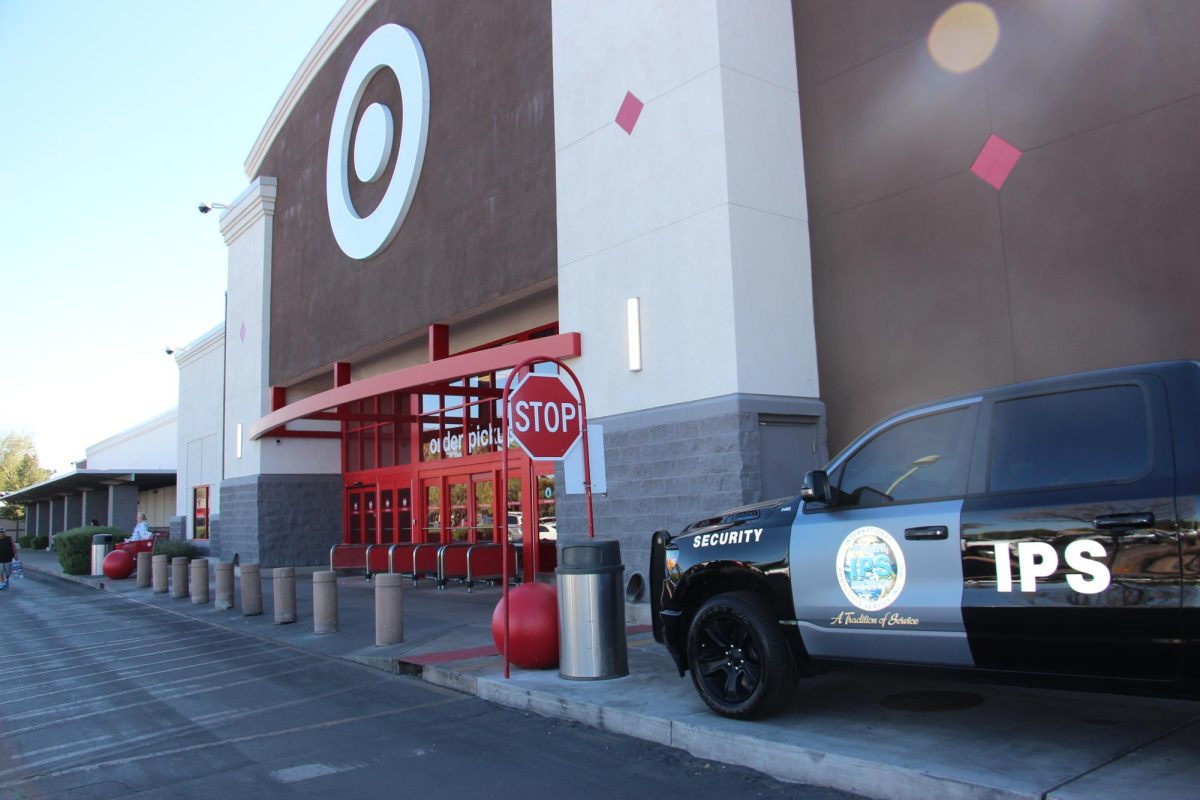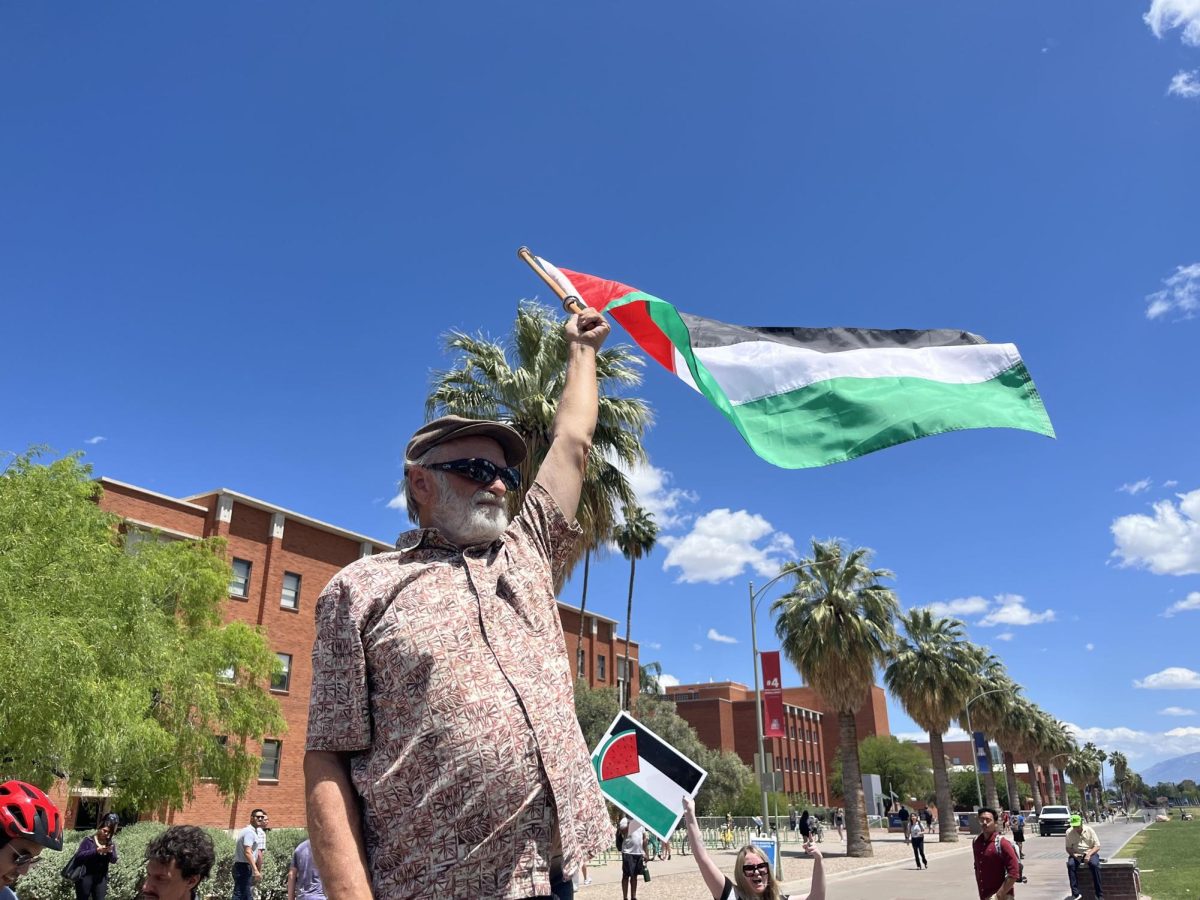Tucson has become a hotspot for growing protests, sparked by global issues like the Israel-Palestine conflict and local reactions to President Donald Trump’s policies.
What began as a response from the University of Arizona students to the escalating violence between Israel and Palestine in October 2023 became a focal point for a new wave of political activism in Tucson. University students, local community leaders and advocacy groups have come together to protest against racial injustice and the government while advocating for issues like climate action, women’s rights and LGBTQ+ rights.
“I feel like it’s always student-driven at first,” said Tucsonan Cameron Capara, who is often present at protests, both advocating and photographing. “A lot of times these movements start off on campus, and then they kind of spread to the greater community.”
According to United Way NCA, an organization focused on improving health, education, and economic opportunity, nearly 40% of college students report regularly engaging in activism or social justice work.
After protests began to grow in 2023, University of Arizona students gathered frequently for both minor and major demonstrations. In April 2024, the university took action to prevent the growth of an event for pro-Palestine by warning students not to gather on the UA Mall past 10:30 p.m., threatening to arrest those who did.
Geneva Cole, an assistant professor in the School of Government and Public Policy who researches political psychology, attributes the rise in activism to a recurring trend in history.
“There has been a historical legacy of college protests in this country,” she said. “Students protested in sit-ins for civil rights, they protested against the Vietnam War, Occupy Wall Street. Campuses were, you know, central to BLM protests in 2020 and afterwards, and you know a huge site of protests on behalf of Palestine in the spring of last year.”

The tradition of student activism remains strong today. Cole noted that Gen Z, now in college, has grown up in a time of political turmoil and instability, which leads to heightened anxiety and mobilizes the rise in demonstrations. Protests sweeping across Tucson are fueled by the growing influence of student-led movements.
On Feb. 5, 17 and 22 – nearly two years after a series of protests began on and around campus – hundreds of Tucsonans took part in the 50501 movement, a coordinated national effort of 50 protests taking place in all 50 states.
“It’s something that we all have to do,” said Robert White, who was among those protesting on Feb. 17. “If this happens at every city in the country, someone’s gonna pick up a hint that people are not happy.”
That protest was a demonstration against newly elected President Donald Trump’s policies and actions.
“We’re in a moment where there could be dramatic change, but there also could be sort of reversion to the status quo,” said Cole.
Capara’s participation in protests is driven by a personal responsibility to speak up for those who are afraid or unable.
“I’m seeing a big push of a lot of people coming out to more protests because, you know, everyone is somehow personally affected,” he said. “I think with the age of digital and social media, it’s so easy to get the information out there, share it with a bigger crowd.”
Social media plays a significant role in promoting activism, with 46% of U.S. adults reported as politically active on these platforms, according to Statista’s Social Media Reports.
“Social media has made it easier to participate in these things,” Cole said, adding that the internet opens up new avenues for organizing.
“The more that people protest and the more that people are out using their voices, it does show the local government and, essentially, hopefully the federal government that we’re not just gonna back down and let some of these policy changes occur,” Capara said.

Students of the University of Arizona protest against DEI initiatives on Feb. 27, 2025.
Arizona Sonoran News is a news service of the University of Arizona School of Journalism.





